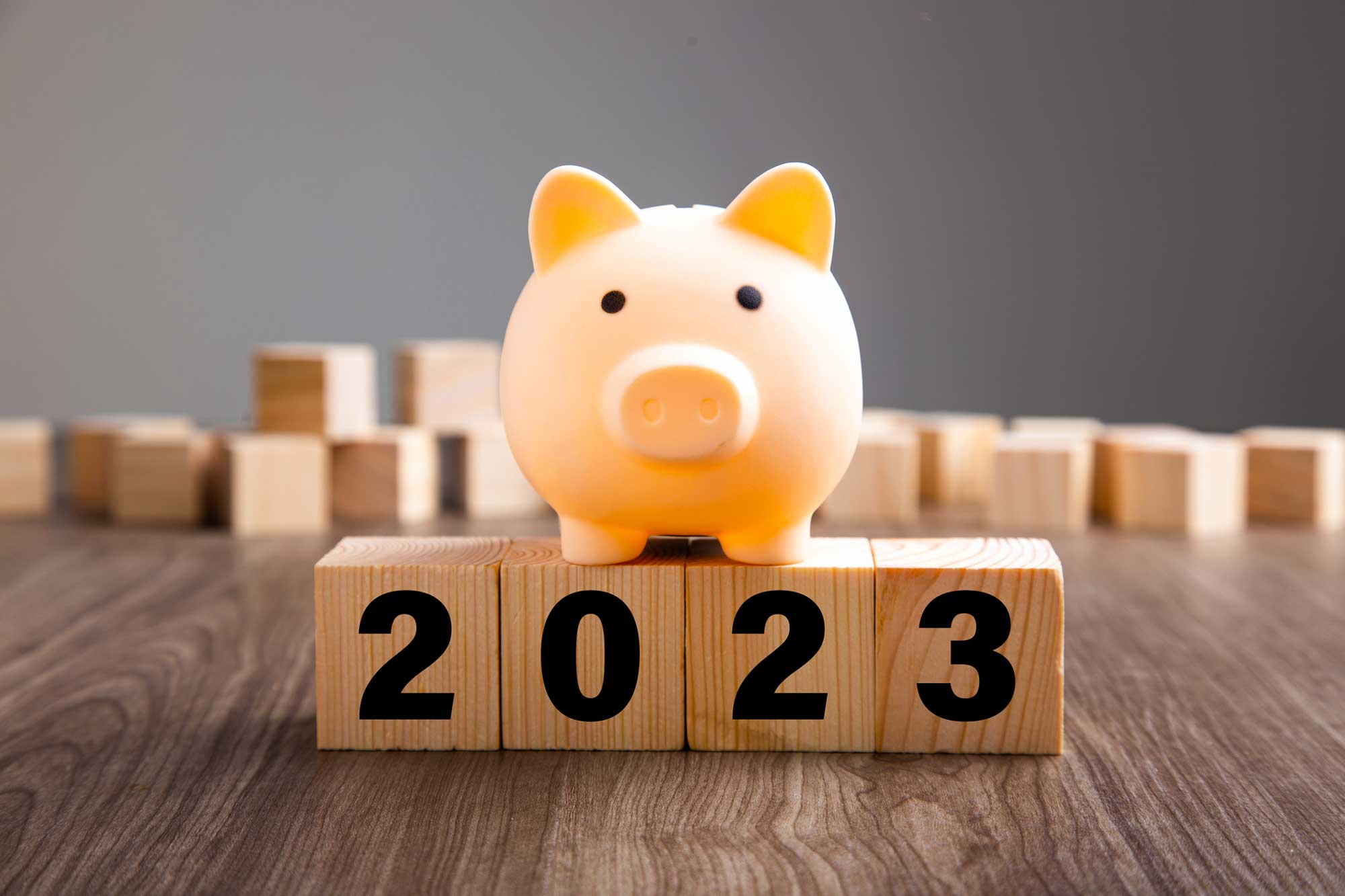Have you ever thought about really starting off a new year with intention, eager to get some aspect of your life in order without procrastinating once and for all? Well guess what? There’s a new year coming up in 33 days and that gives us all a little more than a month’s time to set some financial goals and set a new budget for 2023.
Economic analysts are predicting a “mild” recession next year. That means, high inflation, increased interest rates, and political instability around the world will cause us—meaning we folks who spend our hard-earned money on groceries, home goods, entertainment, etc.—to pull back on our spending. But predictions are just guesses. We can still go into 2023 with a positive financial plan for ourselves. So, let’s get started on a new budget for the new year now and hit the ground running with that Christmas money from grandma safe in our piggy banks come Jan. 1!
Set Your Money Goals
Of course, we all hope to stumble into millions of dollars somehow, but we need to set a more realistic plan just in case. The first order of business for a new budget is to ask yourself, “What are my money goals for 2023?” Then, make a list!
- Do I want to start a savings account or add to an existing one?
- Am I hoping to have a specific amount in savings by the end of the year?
- Is there a certain debt I want to have paid off this year?
Review Your Current Spending Habits
This is the scariest part of setting a budget. No one likes to admit how bad we are with our own money. But it’s a dangerous game to keep our heads in the sand about how much money we’re earning and spending. Eventually, not knowing will get us into financial trouble. It’s one thing to end up eating peanut butter and crackers for a whole weekend as young, single adults. But as adults with personal or family obligations, we need to stay on top of things!
- How much money do I earn every month?
- How much do I spend on living expenses every month?
- How much do I spend on non-essentials every month?
Plan to Cut Your Spending
When our income changes, or our needs change, the first order of business is to reevaluate our budgets accordingly. Using the answers to the questions above:
- Am I earning enough to reach my new money goal, or do I need to earn more?
- Can I reduce my cost of living expenses and put those savings toward my goal?
- Can I reduce spending on non-essentials and put those savings toward my goal?
Stay on Top of Your Money Goal
Once we’ve done the work of planning for our money goal, we have to keep our eyes on the goal. That means working hard and staying motivated and reviewing our budget often. Keep a budget spreadsheet and write it down every time you get paid, every time you spend, and every time you put money toward your goal!
Money can feel intangible and illusive, especially when we don’t have a lot of it. Plus, when we do everything through digital banking and spending with debit cards, money can just come and go without feeling meaningful at all. We need to see ourselves getting closer to our money goal and tracking our path to achieving it will provide much needed encouragement along the way!





